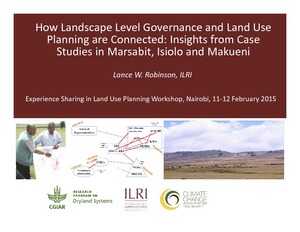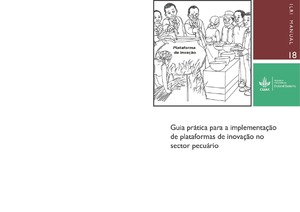Location
Vision, mission and strategy
ILRI's strategy 2013-2022 was approved in December 2012. It emerged from a wide processof consultation and engagement.
ILRI envisions... a world where all people have access to enough food and livelihood options to fulfil their potential.
ILRI’s mission is... to improve food and nutritional security and to reduce poverty in developing countries through research for efficient, safe and sustainable use of livestock—ensuring better lives through livestock.
ILRI’s three strategic objectives are:
- with partners, to develop, test, adapt and promote science-based practices that—being sustainable and scalable—achieve better lives through livestock.
- with partners,to provide compelling scientific evidence in ways that persuade decision-makers—from farms to boardrooms and parliaments—that smarter policies and bigger livestock investments can deliver significant socio-economic, health and environmental dividends to both poor nations and households.
- with partners,to increase capacity among ILRI’s key stakeholders to make better use of livestock science and investments for better lives through livestock.
This is ILRI’s second ten-year strategy. It incorporates a number of changes, many based on learning from the previous strategy (2000–2010, initially produced in 2000 and modified in 2002), an interim strategy (2011–2012) and an assessment of the external and internal environments in which the institute operates.
Members:
Resources
Displaying 246 - 250 of 1152How landscape level governance and land use planning are connected: Insights from case studies in Marsabit, Isiolo and Makueni
Guia prática para a implementação de plataformas de inovação no sector pecuário
Strengthening the resiliency of dryland forest-based livelihoods in Ethiopia and South Sudan
This literature review explores how political, economic and resource management policies and programs can reduce forest degradation and increase the contribution of forest goods and services to sustainable livelihood strategies. In Ethiopia, studies indicate that forest dependency is strong throughout the country, but the importance of forest income varies across different regions and wealth categories. Research suggests that improving forest product market governance is key to strengthening forest livelihood resiliency.






